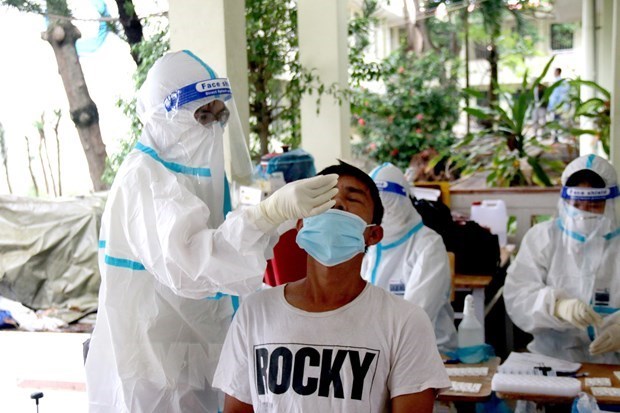 |
|
|
Thirty-two cities and provinces across the country have declared their COVID-19 risk levels by October 18, following the Government’s new guidelines on safe adaption to the pandemic outlined in Resolution 128/NQ-CP.
The guidelines set out three indicators to assess the level of pandemic risk – the number of new community infections, the coverage of vaccinations, and the ability to receive and treat patients at all levels.
Accordingly, 18 provinces have been at Level 1. They are Lai Chau, Cao Bang, Lao Cai, Bac Kan, Dien Bien, Tuyen Quang, Thai Nguyen, Bac Ninh, Bac Giang, Nam Dinh, Quang Ninh, Quang Ngai, Phu Yen, Dong Nai, Ben Tre, Binh Thuan, and Soc Trang.
Fourteen cities and provinces at Level 2 include Vinh Phuc, Phu Tho, Son La, Hai Duong, Hung Yen, Ha Tinh, Da Nang, Quang Tri, Dak Lak, Can Tho, Long An, Tien Giang, Bac Lieu and Vinh Long.
Though the capital city of Hanoi has yet to declare its risk level, the municipal Centre for Disease Control and Prevention (CDC Hanoi) has assessed the city’s first and second indicators (the number of new community infections and vaccine coverage) as Level 1.
Many other localities also have not officially announced their status but they have issued instructions and taken measures to safely live with the pandemic so as to revive socio-economic development.
Under Resolution 128, four levels of pandemic risk are introduced as follows: Level 1: Low-risk (new normal) – labeled green; Level 2: Medium-risk – labeled yellow; Level 3: High-risk – labeled orange and Level 4: Very high-risk – labeled red.
Based on instructions of the Ministry of Health, cities and provinces shall decide to raise or lower their COVID-19 risk levels. In case of raising the pandemic assessment risk, local authorities shall have to inform citizens and businesses at least 48 hours in advance.
Localities, based on the pandemic situation and vaccination rate, shall specify the limit on the number of participants and the scope of activities. Priority will be given to those who have been given the full two doses of vaccines and those who have recovered from COVID-19.
For example, indoor gatherings will not be allowed to take place or only with a limited number of participants in red and orange zones, while in green zones, there’s no limit on the number of participants.
Road, inland waterway and sea passenger transport will have to stop or limit operations in red and orange zones. The frequency of such activities must be reduced in yellow zones.
Interprovincial and intra-provincial transportation of goods are allowed to operate at all four levels, with strict adherence to pandemic prevention and control measures./.
Source: VNA